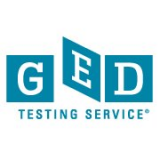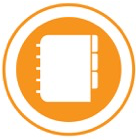Adult Education and Literacy
About Illinois Workforce Education
Economic and demographic changes are dramatically increasing the need for adult education, literacy, and English as a Second Language programs. Millions of Illinois residents lack the literacy skills that they need to obtain good jobs and to function well in an increasingly complex society. There is a direct correlation between higher literacy levels and higher income, numbers of weeks worked, children’s success in school, and individual and family health. Large numbers of immigrants have come to this country seeking education, work, and a higher quality of life, yet many of these immigrants do not have the English literacy or other skills to enable them to meet social, educational, and work demands. To address the scope and diversity of need for adult education and literacy skills by both individuals and employers requires a strategy involving a variety of providers. Community colleges, public schools, community-based organizations, local education agencies, and Regional Offices of Education are uniquely suited to provide the education and services needed by various groups of adult learners.
The Adult Education programs currently funded by ICCB’s AELFA program are identified in the Adult Education and Literacy Funded Provider Directory.
FY 2025 and FY2026 Adult Education and Literacy Funded Provider Directory
Workforce Innovation and Opportunity Act: Title II Partners and Information
The following resources are related to the implementation of the Adult Education and Family Literacy Grant under the Workforce Innovation and Opportunity Act.
Ability to Benefit (ATB)
Ability to Benefit (ATB), a provision of section 484(d) of the Higher Education Act (HEA), aids in equity of access to Federal Financial Aid for adult learners lacking a high school diploma. The ATB provision allows eligible adult learners who are participating in a career pathway program as amended in Public Law 114-113 under section 484(d)(2) of the HEA at a Title IV eligible institution to have access to financial aid. However, the two currently US Department of Education approved methods of ATB are underutilized due to the challenges they place on students. Thus, an alternative plan has been created by Illinois, and approved by the U.S. Department of Education, to overcome barriers to postsecondary attainment and scale ATB use. The purpose of Illinois’ Ability to Benefit State-Defined Process is to increase access to federal financial aid for eligible adults without a high school diploma, who with proper support can be as successful as their peers in postsecondary
Other ATB Resources:
- ATB Approved Tests – November 2020
High School Equivalency
Reopening of Illinois High School Equivalency Testing Sites.
The Illinois Community College Board (ICCB) has announced the reopening of high school equivalency (HSE) testing centers in public-facing, private, and walk-in testing facilities beginning June 16, 2020. All test centers must follow the ICCB guidelines for safely reopening, available here.
To determine if a test site has reopened near you, please utilize each respective vendor’s website for registration and scheduling:
- For GED® registration: https://ged.com/
- For HiSET® registration: https://hiset.org/
Test takers can find additional information on each exam and testing policies here: Test Takers
The ICCB is continuing to monitor the situation and will provide updates through our website: www.iccb.org. If you have any questions, please free to email us at: hse@illinois.gov.
The Illinois State Constitution Test Requirement Returns
As of July 1, 2022, the Constitution requirement for awarding the Illinois High School Equivalency Certificate returns. It was previously suspended due to the COVID-19 virus and the limited access to testing. In order to complete the requirement, a test-taker will only need to complete the new State of Illinois Constitution Module.
The new online Illinois Constitution Module (Constitution Module) is available beginning July 1 at http://ilconstitution.org/. It is estimated it will take two hours for a student to complete. It is available for HSE candidates to take independently and does not require proctoring at a testing center. Testing Centers will no longer offer the previous Constitution Test. After completion of the Constitution Module, completers will be asked to provide information about themselves that will be used to match the completion with HSE records in the Illinois High School Equivalency Portal. Completers will also be able to print or download a certificate showing the completion.
A student who completed the previous Constitution Test or can demonstrate passing the Constitution Test in high school does not need to complete the Constitution Module.
The suspension of the Constitution Test requirement between February 1, 2021 and June 30, 2022 means:
- Anyone who completed and passed an ICCB-approved high school equivalency exam (GED® or HiSET®) based on the State of Illinois requirements between February 1, 2021 and June 30, 2022 will be issued an Illinois High School Equivalency (ILHSE) Certificate without the need to complete the Constitution requirement.
- Anyone who completed and passed a high school equivalency exam (GED®, HiSET®, or TASC™) but did not pass the constitution test prior to February 1, 2021, will be issued an Illinois High School Equivalency (ILHSE) Certificate upon request without the need to complete the Constitution requirement
High school equivalency records are held at the county level in Illinois. To request copies of an official transcript or Illinois High School Equivalency Certificate, candidates must contact the Regional Office of Education for the county where the test was taken.
High school equivalency candidates may find the appropriate Regional Office of Education to contact by searching our ROE locator at: http://iccbdbsrv.iccb.org/roesearch/citysearch.cfm
If you have any questions, please contact the ICCB at: iccb.hse@illinois.gov
Resources
- High School Diploma for Adult Learners Program
- Administrators & ROEs
- Students & Test-Takers
- Ordering Transcripts & Certificates
- HSE Verification Requests
- The U.S. and Illinois State Constitution and Flag Test
Advisory Council
Public Act 91-0830 provides for governance of Adult Education and Family Literacy (AEFL) by the Illinois Community College Board (ICCB), stating the agency “shall establish an advisory council consisting of all categories of eligible providers; agency partners, such as the State Board of Education, the Department of Human Services, the Illinois Department of Employment Security, the Secretary of State Literacy Program; and other stakeholders to identify, deliberate, and make recommendations to the State Board on adult education policy and priorities.”
Minutes
March 2021 | October 2020 | May 2020 | October 2019 | May 2019 | March 2019 | September 2018 | May 2018 | March 2018 | September 2017 | March 2017 | September 2016 | May 2016 | March 2016 | February 2016 | May 2015 | March 2015 | May 2014 | March 2014 | January 2014 | May 2013 | March 2013 | January 2013 | September 2012 | May 2012 | March 2012 | January 2012 | September 2011 | May 2011 | March 2011 | February 2011 | September 2010 | May 2010 | March 2010 | October 2009 | May 2009 | March 2009 | September 2008 | May 2008 | March 2008 | January 2008 | September 2007 | May 2007 | January 2007 | September 2006 | June 2006 | March 2006 | January 2006 | September 2005 | June 2005 | March 2005 | October 2004
Adult Education Equity Survey
Adult Education Advisory Council Recommendations
Curriculum & Instruction Recommendations:
WIOA
The Draft 2020 WIOA Unified State Plan
Welcome to the ICCB’s Workforce Innovation and Opportunity Act (WIOA) web page. On this page we will post links to important documents such as the WIOA law, proposed rules, critical sites, and archived copies of the new WIOA newsletter, which will go out via email every other week with important updates and links. Information reference in the newsletters will be linked to this page.
What is WIOA?
WIOA is the Workforce Innovation and Opportunity Act of 2014. WIOA retains many of the functions and structures of WIA, the Workforce Investment Act of 1998, and incorporates certain new components, including expanded partnerships and greater coordination and alignment between education and workforce entities.
WIOA comprises four primary core partners and twelve required partners:
- Title I – Workforce (adult, youth, & dislocated workers) [DCEO]
- Title II – Adult Education [ICCB]
- Title III – Wagner Peyser [IDES]
- Title IV – Vocational Rehabilitation [DHS]
WIOA: The Workforce Innovation and Opportunity Act
Proposed Rules, First Round:
ICCB Comments on the Notice for Proposed Rule Making (NPRM) for WIOA:
ICCB WIOA Newsletters:
- Issue 1 – May 15, 2015
- Issue 2 – May 29, 2015
- Issue 3 – June 26, 2015
- Issue 4 – August 11, 2015
- Issue 5 – November 13, 2015
Illinois Works Together Newsletters can be found here.
LWIA Contact List Now Available
The Department of Commerce & Economic Opportunity (DCEO) keeps a listing with the contact information for key individuals affiliated with each of the LWIAs and LWIBs.
The purpose of the list is to serve as the official list of contacts for each local workforce investment area’s Chief Elected Official(s), LWIB Chair, LWIB Staff, WIA Program Services Administrator and DCEO Office of Employment & Training Staff.
To access this contact list, click here.
WIOA Implementation Task Advisory Groups (TAGs)
In Illinois, several local level Task Advisory Groups have been established to provide a local perspective on issues related to the implementation of the Federal Workforce Innovation and Opportunity Act (WIOA). The seven groups follow:
- Governance
- Planning
- Policy
- Operations
- Performance
- Technology
- Youth
Each group has two primary tasks:
- To make recommendations to State policymakers in specific areas identified for each group, and
- To identify significant requirements of the WIOA for which Illinois will provide specific comments in conjunction with Federal rulemaking.
The current membership from the community college system, members of Adult Education (AE) and Career & Technical Education (CTE) administration and staff, as well as ICCB staff, of each TAG follows and will be updated as needed:
1. Governance
- Joanne Kantner, AE – Kishwaukee College
- Peggy Heinrich, AE – Elgin Community College
- Jean Kartje, CTE – College of DuPage
- Karen Hunter Anderson – ICCB
- Jennifer Foster – ICCB
- Lavon Nelson – ICCB
2. Planning
- Tawanna Nickens, AE – Parkland College
- Val Harris, AE – Lewis & Clark Community College
- Ali O’Brien, CTE – College of Lake County
- Jennifer Foster – ICCB
- Lavon Nelson – ICCB
3. Policy
- Rocki Wilkerson, AE – Decatur Public Schools
- David Wu, AE – Pui Tak, Chicago
- Michael Boyd, CTE – Kankakee Community College
- Jennifer Foster – ICCB
- Brian Durham – ICCB
- Lavon Nelson – ICCB
4. Operations
- Glenda Nicke, AE – Black Hawk College
- Lisa Atkins, AE – Southwestern Illinois College
- Dave Kietzmann, CTE – Danville Area Community College
- Lavon Nelson – ICCB
- Marilyn Schmidt – ICCB
5. Performance
- Dan Deasy, AE – College of DuPage
- Bob Fittin, AE – Greater West Township Project
- David Beer, CTE – Waubonsee Community College
- Nathan Wilson – ICCB
- Jay Brooks – ICCB
6. Technology
- Randy Fletcher, CTE – Joliet Junior College
- Jeff Newell – ICCB
- Todd Jorns – ICCB
7. Youth
- Val Harris, AE – Lewis & Clark Community College
- Wendy Howerter, CTE – Lincoln Land Community College
- Amanda Corso – ICCB
- Ben McDaniel – ICCB
Funding Opportunities
Funding
Early School Leaver Transition Program
Allocations and Appropriations & Supporting Technical Data Appendix
Fiscal Year 2022
FY 2022 Adult Education and Literacy Awards
FY 2022 Early School Leaver Transition Program (ESLTP) Grant Notice of Funding Opportunity
Fiscal Year 2020
FY 2020 Adult Education and Literacy Additional Federal Basic Allocations
Area Plans
According to 105 ILCS 405/2-4, the Area Planning Council shall provide for the development and coordination of adult education programs in an Area Planning Council Region. The Plan has broad purposes including: identifying services currently being offered to the identified population, producing a plan for continuing services, identifying gaps in services, identifying reasons for these gaps and as a planning tool to identify ways to service the identified service gaps.
- FY 2023 APC Forms
- FY 2021 APC Forms
- Early School Leaver Transition Program
- Distance & Lab Based Learning Pilot RFP
- Integrated Career and Academic Preparation System (ICAPS)
Provider Resources
#APC Manual
APC
Please find the Area Planning Council forms below. The Area Plan must be submitted to the ICCB Compliance email (ICCB.ael.compliance@illinois.gov) by February 1, 2024. Please reach out to your ICCB Program Support for questions.
Ability to Benefit
Ability to Benefit (ATB), a provision of section 484(d) of the Higher Education Act (HEA), aids in equity of access to Federal Financial Aid for adult learners lacking a high school diploma. The ATB provision allows eligible adult learners who are participating in a career pathway program as amended in Public Law 114-113 under section 484(d)(2) of the HEA at a Title IV eligible institution to have access to financial aid. However, the two currently US Department of Education approved methods of ATB are underutilized due to the challenges they place on students. Thus, an alternative plan has been created by Illinois, and approved by the U.S. Department of Education, to overcome barriers to postsecondary attainment and scale ATB use. The purpose of Illinois’ Ability to Benefit State-Defined Process is to increase access to federal financial aid for eligible adults without a high school diploma, who with proper support can be as successful as their peers in postsecondary
Other ATB Resources:
- ATB Approved Tests – November 2020
- DOE’s FAQ for Eligible Career Pathways
- One-pager about IL Alternative Plan
- FAQ about IL’s Proposed State Plan
- 2019 Ability to Benefit Survey Results
Adult Learner Forms
- AEL Student Intake Form
- AEL Student Update Form
- Best Literacy Test Screener
- Consent to Obtain HSE Testing Information
- Student Separation Form
- Use of Transfer Code in Fixed Entry Classes
Adult Education and Literacy Reporting
Requests for extensions must be submitted in writing at least 10 days prior to the report due date.
- Request for Extension Form
- All reports, budget modifications, and payment requests must be submitted to grantpayments@illinois.gov
- Expenditure Reports, Payment Request Templates, and Budget Modification templates can be found on the Grant Opportunities Page found here https://www.iccb.org/grant-opportunities/
Fiscal Documents
- AEFLA Expenditure Report Template
- AEFLA Budget Modification Template
- IELCE Expenditure Report Template
- IELCE Budget Modification Template
Programmatic Documents
- AEFLA Programmatic Quarterly Report
- IELCE Programmatic Quarterly Report**Note: This is the same report as the AEFLA Work Plan but placed here for your convenience since there needs to be a separately submitted report for AEFLA and IELCE.
Quarter Reports – DUE October 30
- Submit your AEFLA and IELCE Expenditure Reports and Programmatic Quarterly Reports.
Quarter 2 Reports – DUE January 30
- Submit your AEFLA and IELCE Expenditure Reports and Programmatic Quarterly Reports.
Quarter 3 Reports – DUE April 30
- Submit your AEFLA and IELCE Expenditure Reports and Programmatic Quarterly Reports.
FINAL BUDGET MODIFICATION – Due May 31
- Budgets within a single funding source may be modified without requesting approval from the ICCB as long as the changes do not affect 2 CFR 200.308. Budget modifications needing ICCB approval must be signed by the Grantee’s authorized representative upon submission for approval.
Quarter 4 Reports – DUE July 30
- Submit your AEFLA and IELCE Expenditure Reports and Programmatic Quarterly Reports. Additional reports include the Data Quality Checklist and the ADA Report.
- Data Quality Checklist
- The ADA Report
FINAL DATE FOR A REQUEST FOR FEDERAL FUNDS
All federal funds must have been requested no later than August 1. Funds requested after this date will not be processed. It is strongly encouraged that all Federal funds be requested prior to the August 1st
End of Year Reports – DUE August 31
- Submit the following reports.
- One Stop Infrastructure Report
- Career and Training Report
- Equipment Inventory Report
- DAISI Data Verification **From DAISI**
- Certified Units of Instruction **From DAISI**
- Signed Enrollment Report **From DAISI**
- Time Distribution Sheets are required to be maintained at the program level. These do not need to be submitted to ICCB but should be made available upon request.
- Time Distribution Sheet
Course Approvals
Directions for submitting course approvals and / or course modifications can be found in the Adult Education Provider Manual. Below are the forms and the links necessary to complete the submissions.
- Bridge Course Addendum 11D
- Course Modification Form
- Course Submission Form
- Online Hybrid Course Addendum 11-OL
Data Management – Resources to help manage your program data.
High School Equivalency Resources
- All forms related to the High School Equivalency, Access to the GED Manager, Corrections Request for GED Manager Access, HiSET, and testing are found here: http://www2.iccb.org/adult_ed/hse/administrators-and-roes/
Integrated English Language and Civics Education
Remote Learning Find approved distance learning platforms or submit information for approvals.
Provider Updates Jot Forms
- Provider Updates
Work based Learning Resources and Documents
-
- Bridge Programs
- Every adult education provider is required to have an active Bridge Program with enrolled learners. If you have questions about developing a program or any ICCB expectations, please reach out to your Regional Support and they will connect you to appropriate resources and professional development.
- Bridge Program Approval Form
- Integrated Career and Academic Preparation System (ICAPS)
- Every adult education provider is required to have an active ICAPS Program with enrolled learners. Resources and information about developing and maintaining an ICAPS program.
- ICAPS Information
- ICAPS Approval Form
- Bridge Programs
Workforce Innovation and Opportunities Act: Title II Partners and Information
Link to resources related to the implementation of the Adult Education and Family Literacy Grant under the Workforce Innovation and Opportunities Act.
Student Resources
Use the Program Directory link above to find an Adult Education program to help you prepare for testing. Use the GED Testing Service link above to register for testing.
When your GED is finished, you will need to meet the Illinois Constitution Requirement (https://www2.iccb.org/adult_ed/hse/students-test-takers/the-u-s-and-illlinois-constitution-test/) to complete your State of Illinois High School Diploma.



